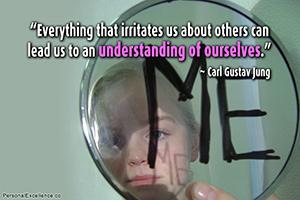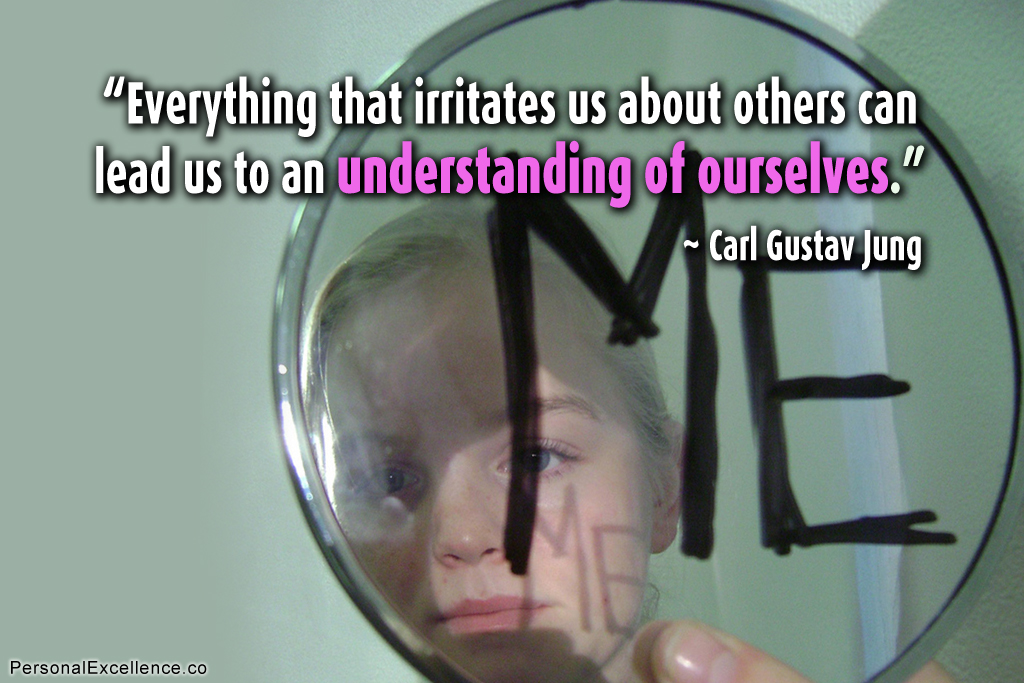This is part 3 of a 4-part series on how to deal with disappointment.
- Part 1: 3 Reasons Why Disappointment Is Good
- Part 2: Are You Letting Your Disappointments Destroy You?
- Part 3: How to Deal With Disappointment
- Part 4: My Experience with Disappointment and How I Overcame It

“What doesn’t kill us makes us stronger.” — Friedrich Nietzsche
In part 1, I shared 3 reasons why disappointment is good. In part 2, I talked about 3 destructive methods of dealing with disappointment which you should avoid. In this part, I share how to deal with disappointments in a constructive manner.
How To Deal With Disappointment: The Complete Guide
Step 1: Put yourself in a better mental state
Whenever you experience disappointment, you are pulled down to a lower state of consciousness, where your thoughts are predominantly rooted in fear, sadness, grief, or apathy. There may be times when the feeling of disappointment is so overwhelming that it feels like the end of the world.
Being trapped in such a state prevents you from thinking logically. Your first step should be to bring your consciousness up to a more neutral or positive level such as desire, neutrality, willingness, or reason, so that you are in a better position to react to your situation.
Look for positive activities to recharge yourself. What activities do you most enjoy doing in your life? Identify them. It can be writing in your personal journal, walking in the park, watching a happy movie, playing games, or talking to positive friends. If reading your favorite book uplifts you, then pick up the book and start reading it. If taking a stroll along your neighborhood makes you feel relax, then get out of your house and enjoy the breeze outside. If playing games makes you happier, go ahead and play them (but not in an excessive way). Do whatever makes you feel better. Sometimes, simply spending time alone may be the best way to clear your mental clutter and regain personal energy.
For me, I find that a combination of activities including alone time, talking with my good friends, and watching my favorite shows uplift me considerably. In times when I feel really down, I prefer to spend time by myself. This alone time lets me sort out the thoughts in my mind, think without interference, and gain clarity on what to do in my situation. Talking with my friends, on the other hand, helps me learn other perspectives which I may not be aware of.
Step 2: Attach yourself to your desire, not your goal
When you are disappointed, your source of disappointment is rooted in your attachment to a certain outcome. When the outcome does not happen the way you envisioned, you become disappointed. This is a perfectly natural response.
However, understand that your goal is a reflection of an underlying desire. It is merely one of the many ways to fulfill your desire.
Let’s say you went for an interview with Company A. You love the job scope, the benefits are great, and you have heard great things about the place. You see a career at Company A as your dream career. However, you are passed over for another candidate whom they deem a better fit for the role. Company A happens to have a policy of only accepting job applications from the same person every 2 years. There is no way you can apply until 2 years later. What should you do then?
Step #2 to deal with disappointment is to focus on your underlying desire for your goal, not the goal itself. Start off by recognizing that a job in Company A is just a projection of your inner desire. This inner desire may be to get a job that is highly challenging, in a dynamic working environment. If so, there are many ways you can do that, such as working at Company G, Company H, or even setting up your own business. Working at Company A is just one of the many ways to achieve that.
So here,
- Your goal is to get a job at Company A.
- Your inner desire is to get a career that challenges you in a dynamic working environment.
- Your goal to work at Company A is merely an external projection of your inner desire to grow and challenge yourself to the fullest. There are many other ways to fulfill this desire. Even though the road to work at Company A is closed (for now), you can create other paths to realize your desire — that are perhaps even better than the original path.
A common example when people get attached to an external projection is in relationships. For example, you like person A. You want to be with him/her, but person A does not reciprocate your feelings. While you may feel disappointed, stop and think — What is your underlying intent? It is to be in a loving, authentic relationship with someone. Person A is just one of the many people in this world you can fall in love with. He/She is not going to be only person you are capable of loving; there are many people out there who can be compatible with you. Instead of tying all your expectations to this one person, connect with the underlying desire to be in an authentic relationship.
Ask yourself this question: What is your underlying desire driving your goal/expectation? Understand what it is and write it down. Say you are at point A and you want to move to point B. What is your underlying desire to go to point B? When you connect yourself with this desire, you will realize that point B is just one of the many destinations you can go. There are many other possible destinations, such as point C, D, E, all the way to Z. And then there’s point A-1, A-2, A-3, etc. where you can fulfill your desire just as well, if not better. Focus on your underlying desire, not your external projection, which is only one way of fulfilling your desire.
Step 3: Release yourself of your mental illusion
The next step to deal with disappointment is to release yourself of your illusion of what reality should be. Many people remain disappointed because they are hung up over what reality should be. If you are disappointed about something, that means you harbor a certain perception on what it should be. This perception is not the truth — it is simply your lens with which you see the world.
Example: Say you thought that you should get an ‘A’ after studying for a paper. But you didn’t. So you feel disappointed. Here, your perception that studying hard = automatically getting an ‘A’ is false. There are many ways to study. Perhaps you did not study the right way. Perhaps you studied for the wrong chapters. Perhaps you studied without understanding the subject.
In your mind, you continue to hang on to the perception that you should have gotten an ‘A’. But this is an illusion. It is not the reality. By attaching yourself to this thought, this illusion, it’s causing you anguish. It also prevents you from moving on. As long as you are trapped in it, you can’t get to where you want to go. Dealing with disappointment requires you to let go of your mental illusions and expectations.
When you are disappointed, ask yourself: “What am I getting hung up over? What false perceptions am I clinging on to? What am I expecting from reality that I’m not getting?” Seek out these illusions, one by one. Question how and when you developed these illusions. Become aware of them and release them. These illusions are giving you an inaccurate view of reality. They are preventing you from constructively acting on your situation and living your life the way you should.
If we look at the relationship example in Step #2, you are disappointed because you want to be with person A. You feel that you have lost what could have been a great relationship. However, that is just an illusion that you are playing in your head. If person A does not want to be with you for whatever reasons, he/she is not the person who can meet your desire for a loving relationship. He/she is not the person who can give you what you desire. Your belief that he/she is the one is an illusion you need to release yourself of.
Step 4: Understand the outcome is not a setback
In part 1 on 3 Reasons Why Disappointment Is Good, I shared that one of the reasons why disappointment is good is because it represents an opportunity for growth. Many people get disappointed with something because they view it as a setback. They feel like they have taken a step back from what they want to be.
Building on the studying example above, say you did a lot of prep work for your exams. You had the belief that these actions would result in top results. But instead of achieving that outcome, you fell short of your expectation.
While you may feel disappointed, this experience is showing you that there is an error in your thinking. What you originally thought was sufficient to achieve your goal isn’t. Instead, you may need to increase your input and/or change your approach to get the results you want. Your disappointment is helping you move towards your goals, not away from your goals as you originally thought.
Your experience has allowed you to gain new lessons, whether about yourself, the situation, or the world. You have gained something which nobody else is privy to. How can an outcome be a setback if it gave you something to learn? As the opening quote says, “What doesn’t kill us makes us stronger.” With this lesson, you walk away from this experience a better person. You become a stronger individual. You reach a new state of awareness, consciousness, and growth which you have never had before.
Step 5: Focus on doing the best you can
Finally, do the best you can. Many of us tend to beat ourselves up when things go wrong. We blame ourselves for everything that goes wrong.
Stop doing that. There is no reason to self-blame when things go wrong. There is also no reason to expect that everything will go perfectly. If anything, it’s natural for things to go wrong. By the natural order of things, there will always be a percentage of things that go well, a percentage of things that go “okay,” and a percentage of things that go terribly wrong. But we always focus on the few things that go wrong, rather than the things that go well. This makes negative experiences worse than they really are because we play them over and over in our heads — when they are simply natural occurrences in the universe.
For the things that have gone wrong, do what you can to learn from the experience. Pick up the pieces. And then focus on doing the best you can. Because the ability to learn, move on, and try again using a different approach is the key to success. Check out my posts on breaking out of negativity:
Moving Forward
Dealing with disappointment is definitely not an easy task. But if you work hard on the steps above, they will pull you out of the void you are in. As you start living past your disappointments, focus on living in alignment with your desires, instead of being fixated on your goals. Continue to have goals. Let them drive you forward. But don’t attach yourself to these goals. Because when you do that, you fall into the trap of associating your existence with them. This is not sustainable because your goals are just external outcomes, and these are impermanent.
“Life is not just about reaching the goals; it’s about living it to the fullest.” In every situation you are in, choose the action which lets you live in alignment with your inner desire the most, within your abilities, within your situational context. As long as you are doing that, there is no reason why you should feel bad, because you have done all that you can. I wrote about this in Living in Alignment with Your Purpose in the context of living your life purpose.
When you start doing that, you will find that you are able to live consciously and freely instead of subjecting yourself to external outcomes. You are able to constructively channel into your inner desires to live the life you want.
In the last part, I will share my story on how I overcame a period of disappointment in my life. Read: Part 4: My Experience with Disappointment and How I Overcame It
This is part 3 of a 4-part series on how to deal with disappointment.









 Thanks for reading. If you like my free articles, join my private email list and get my latest updates and articles sent right to your inbox.
Thanks for reading. If you like my free articles, join my private email list and get my latest updates and articles sent right to your inbox.